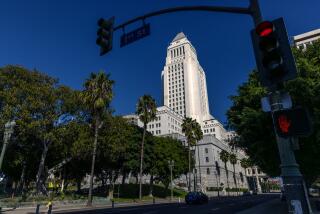Leaders should not meet in secret
Question: Our common-interest development has several incorporated associations within it. Years ago, at the instigation of our contracted community administrator who managed our CID, a Presidents Council was informally created. The administrator-manager wanted to meet with the presidents monthly as a group, rather than individually, to facilitate effective communication of the different associations’ agendas. Each president was allowed to bring one guest.
The council routinely makes policy decisions behind closed doors for the respective associations. Each president then informs his or her association’s directors of decisions that were made and demands that the boards approve a motion to validate actions adopted by the council.
The council is not incorporated and is not a recognized association, and none of the separate associations have authorization in their governing documents for the creation of such a council, but somehow bylaws were created. Are these closed meetings legal? Does this council constitute a “joint neighbor association” that is subject to the Davis-Stirling Act’s open meetings provision? Do homeowners have a right to attend these meetings?
Answer: The Presidents Council is not a joint neighbor association, and its efforts to make decisions that are then forced upon each president’s respective homeowners association are illegal.
It is also unlawful to circumvent the Common Interest Development Open Meeting Act, Civil Code Section 1363.05. Board directors who disavow laws created to provide transparency in board deliberations and due process for all owners could be risking personal liability.
Homeowners have a right to attend all meetings of the so-called Presidents Council, but the council has no right to force its decisions on other associations.
Policy deliberations are to take place through each association’s board of directors, not its presidents. Legitimacy for a so-called Presidents Council is not provided under the Davis-Stirling Act or other such statutes. Unless your governing documents provide for yet another “association” with the authority to govern how each of the separate associations operate, any such attempt to create a Presidents Council for that purpose is unlawful.
Adopting suggestions of an unlawfully created council and imposing pre-made decisions on your own association invalidates the actions taken by your board. Equally important is that the council’s policy decisions may not be appropriate for certain individual associations.
If the actions taken by your board in adopting the decisions of this council are contrary to your association’s governing documents, then the actions are ultra vires. That is the legal term for actions taken beyond the scope of those authorized by the governing documents.
Although these types of council boards are not authorized to conduct business on behalf of the association under the Davis-Stirling Act, they may fall under the auspices of the Brown Act (Government Code Section 54950 et seq.), which requires them to give notice of their meetings, convene meetings that are open to the public and produce minutes of all such meetings.
This council consisting of presidents of other associations cannot by itself enact bylaws that would require other associations to adopt its decisions. As constituted, nothing it enacts is binding on any of the other associations.
--
Send questions to Box 11843, Marina del Rey, CA 90295 or e-mail noexit@mindspring .com.

